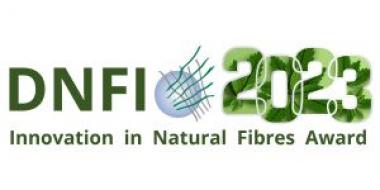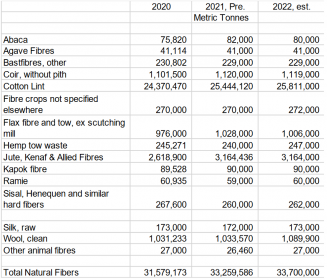Apllications open for DNFI Innovation in Natural Fibres Award 2023
For the seventh time since 2017, the Discover National Fibre Initiative is inviting entries for the ‘DNFI Innovation in Natural Fibres Award’. The purpose of the DNFI Innovation in Natural Fibres Award is to raise awareness of exciting work involving natural fibres, and to help raise the profiles of leading researchers so as to enhance opportunities for commercial application of such work.
The DNFI Award 2023 will be judged in three categories: Innovative products/components or applications, innovative processes/procedures, research and science.
The evaluation criteria are: outstanding scientific work and technical feasibility, the extent of improvement or effectiveness of the innovation compared to existing products or processes in which the innovative product or process has been implemented and the potential for opening up new markets or sectors for products made from natural fibres.
Candidates for the DNFI Innovation in Natural Fibres Award 2023 are requested to send the application with the appropriate submission form by email.
Closing date for applications is 8 September 2023.
DNFI - Discover Natural Fibres Initiative









